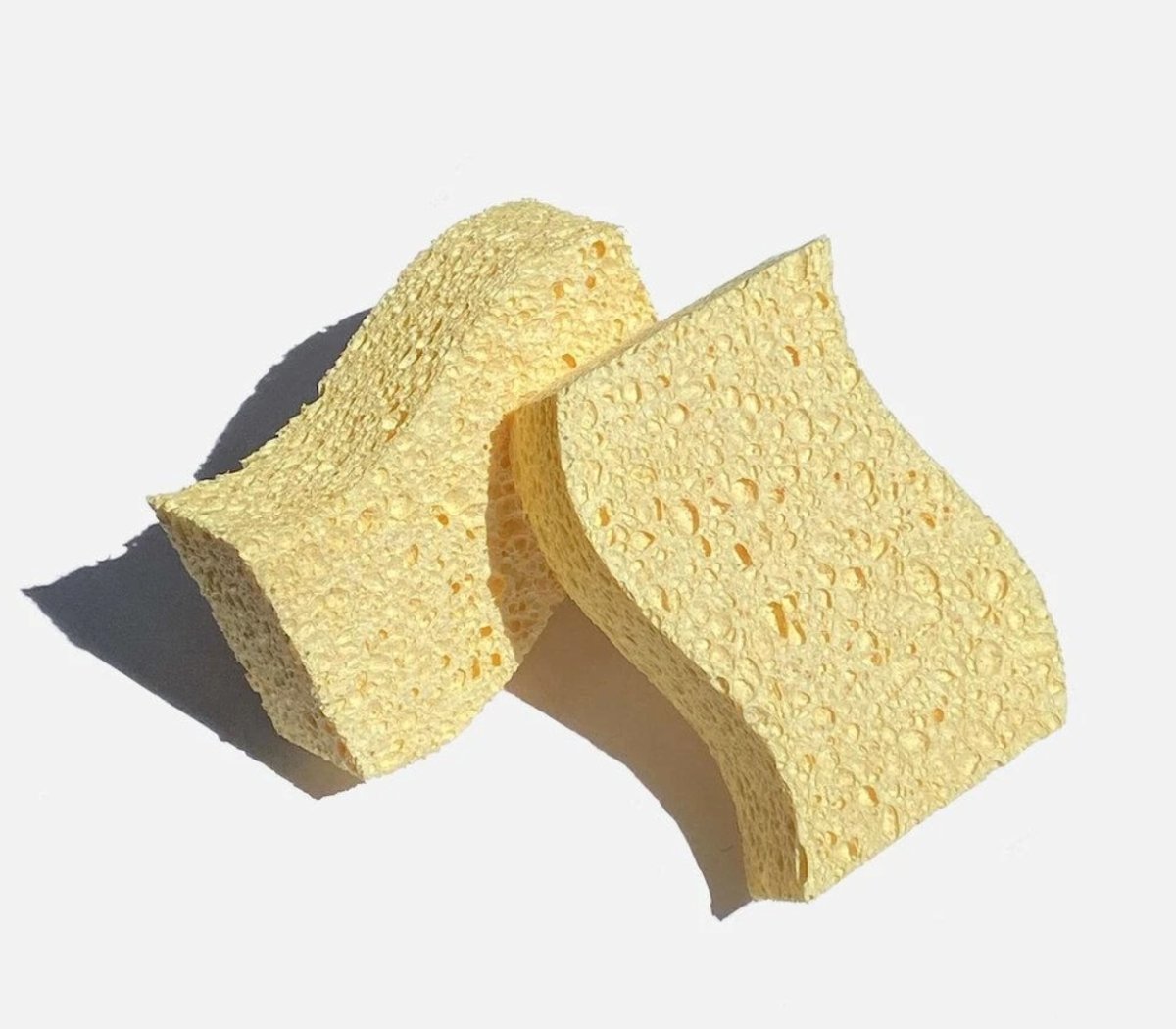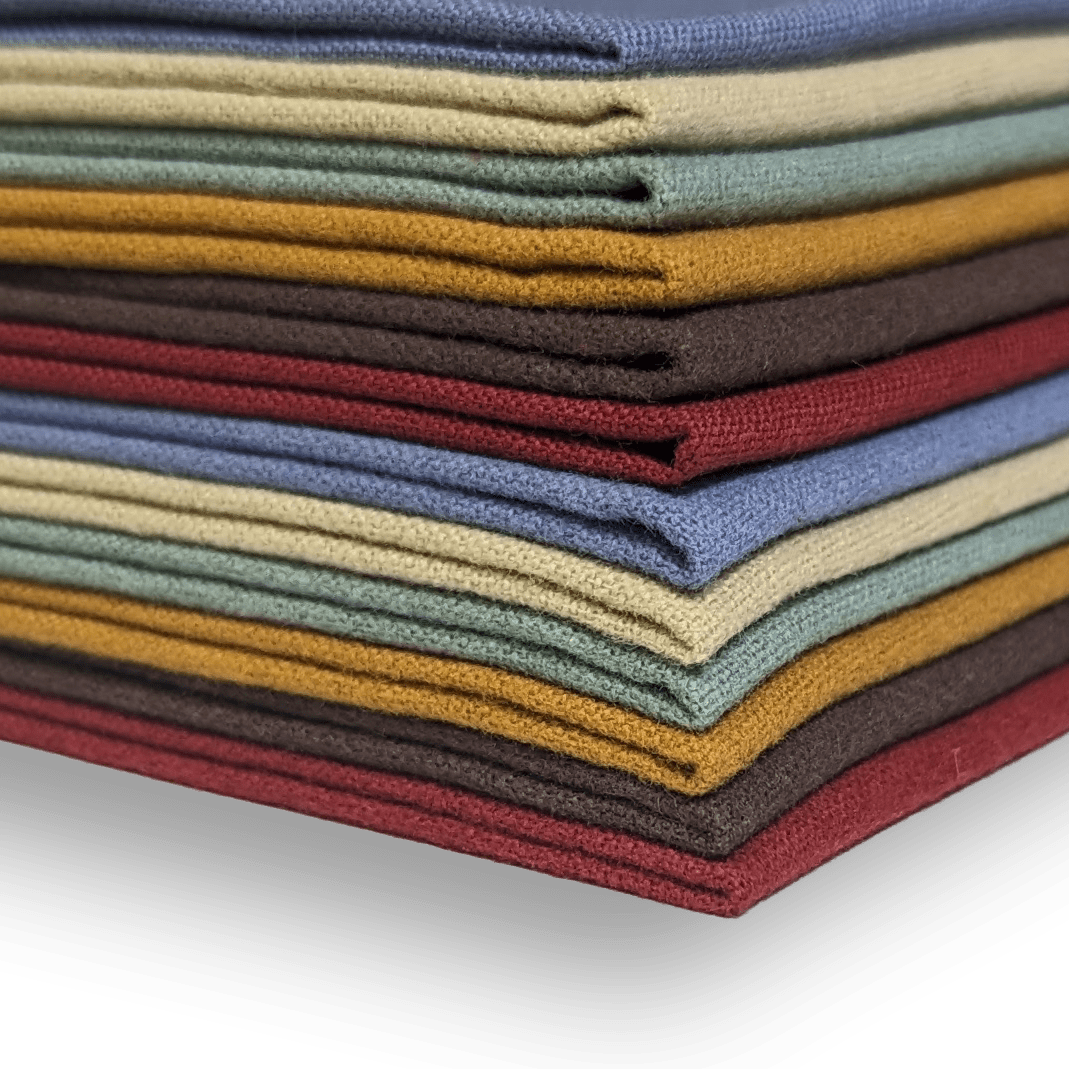When you just begin your zero-waste journey, you’ll probably stop buying all kinds of products, like plastic forks, cups, hygiene bottles, and so on. But what about your dish sponge? If you’re sitting there wondering why your dish sponge would be an issue, well, allow us to teach you more about what they’re made of!
Unfortunately, if you’re using one of those conventional green or yellow sponges, it’s made out of plastic. Microplastics, to be exact, are incredibly harmful to our planet for several reasons. Here’s why you should give up plastic sponges ASAP and make the switch to eco-friendly alternatives!
1. Microplastics Are Harming The Planet

First of all, what are microplastics? Essentially, they’re tiny bits of plastic that are sneaky enough to be hidden inside products that you wouldn’t think of as being plastic in the first place! Since they’re so small, they usually pass through the water filtration system and make it through to our oceans and rivers.
Once microplastics reach the ocean, fish and other aquatic animals eat them unknowingly, which usually ends in severe health issues or death. The main reason microplastic sponges are dangerous for the environment is that as you’re doing your dishes, you’re scrubbing off tiny pieces of plastic that get washed down the drain. And if you think about how often you do your dishes, it’ll help you understand how toxic your dish routine can really be!
2. Disposable, Non-Biodegradable Sponges Aren’t Sustainable

Beyond the microplastics, what about how wasteful disposable, non-biodegradable sponges are? Most sponges are made of nylon, polyester, or polyurethane, all of which aren’t recyclable and easily fall off while scrubbing the dishes. Due to the nature of bacteria build-up and flimsy material, you need to replace your sponge at least once a month. If we all used synthetic sponges for our dishes and replaced them every month, every week, or in worst-case scenarios, every day, you can imagine what our landfills look like. The material might make your sponge squishy, but the environmental cons of conventional sponges aren’t worth it.
3. Eco-Friendly Dish Sponges Contain Zero Microplastics

So, what are the green alternatives to plastic dish sponges? Well, we have several options to reduce your waste while getting the same results. You can either use biodegradable cellulose sponges, a natural dish loofah, or wood-based handle scrubbers. They’re all made from natural materials, containing zero traces of plastic, and will not contribute to pollution! Just like that, no more microplastics are washed down the drain!
4. Eco-Friendly Dish Sponges Eliminate Waste

Since these eco-friendly alternatives are 100% biodegradable, they completely eliminate landfill waste. In a matter of months, the materials will return to the earth, and you can feel guilt-free about your dish tools. Since the materials are stronger than synthetic sponges, they can last several months instead of just one month. When you use natural, plant-based materials, you can reduce your carbon footprint just by making simple swaps that save our landfills from massive amounts of non-biodegradable trash.
5. Natural Alternatives Are Similar in Price

At the end of the day, it’s hard to get on board with eco-friendly swaps unless the price is comparable. Fortunately, plant-based alternatives are similar in price, and since they last so much longer, you’ll end up spending less money overall. If you went with cellulose sponges, we offer a two-pack for $6.99, making each sponge come to roughly $3.50. If you take a look at popular synthetic sponges, like Scotch-Brite, for example, each sponge is around $2.00 but needs to be swapped out every few weeks.
The upfront cost of conventional products might look better at first, but there’s a hidden cost that harms our planet. With green alternatives, you can reduce your carbon footprint and have the peace of mind that you’re not contributing to toxic landfill waste or pollutants that put lives at risk!




Comments
Hey Patti, we put our sponges in the microwave for 30 seconds to help control bacteria and odor. We replace them when they start to break down. Hope that helps.
I am told to replace store bought sponges every 2 weeks because they carry bacteria. They cost about $.55 each. Do your eco friendly sponges resist bacteria?
Thank you for your answer.